Anthropic says its AI will not be used to spy on customers, even in government contracts. Here is what that means for AI governance, enterprise trust and defence partnerships.
Reduce the drop-out rate in SA’s higher education institutions with digital transformation [Sponsored]

South Africa has many issues that education can solve. And, while there’s still much work to do, the most compounding misfortune of them all is probably the high drop-out rate – particularly at the higher education level.
For students to “give up” so close to the finish line, when there are tools available to universities and students to prevent it, is a tragedy.
The why
Digital transformation in higher education is good for many reasons. According to Informatica, some of these reasons include:
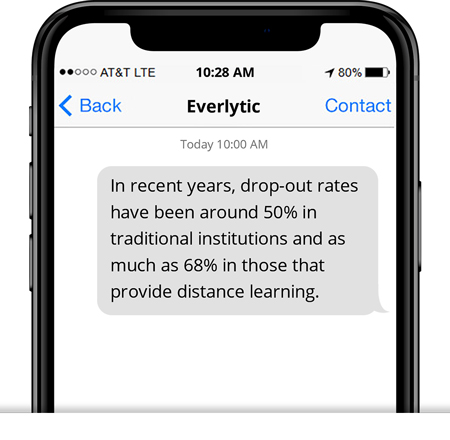
Student engagement
Digital transformation can reduce drop-out rates by connecting with students at key moments in their studies and supporting them throughout the learning journey. Imagine what it could do for the economy and countless households.
Personalised learning
“Students and staff now expect personalised digital experiences, whether in their learning, teaching, research or administrative services, that are equivalent to those they are experiencing in their day-to-day work and social life.” – Digital Transformation in Higher Education: UniSZA Case Study.
Most students today are digitally savvy and accustomed to the personalised, instant experiences that come with smart devices, apps, and the internet. Universities that meet them where they are have a competitive advantage in attracting and retaining students.
Supporting diversity
With South Africa’s melting pot of diversity, one-size-fits-all communication is futile. By using student data alongside some of today’s smart digital technologies, higher education institutions can meet their students as individuals, in areas where they need support, making a significant difference to their student career.
Revenue and profitability
It’s a competitive economy and higher education is no exception. By adopting digital technologies, universities and other institutions can automate and streamline otherwise labour-intensive and time-consuming tasks, reducing costs and increasing efficiencies.
The what
Digital transformation is a broad term. What exactly does it mean in higher education? According to Forbes, it fits into two main categories:
1. Smart data collection and usage
Higher education facilities have access to in-depth student data like personal demographics, account status, study details, and results. But it doesn’t stop there. Educators can go much deeper by tracking things like clicks and views on channels like email, websites, push notifications, SMSs, and even answered or unanswered voice broadcasts.
2. Intelligent student engagement
This uses the data in category one to engage with students at key moments in their learning journey. By understanding who your students are and tracking their behaviour across your channels, you can customise every communication journey, so it provides relevant guidance, on appropriate channels, at exactly the right time.
The how
Now that we’ve got the theory down, let’s explore some examples. If you’re from a higher education institution, here’s how you can use a digital transformation strategy like this to make a difference to your students’ lives:
Prospective students
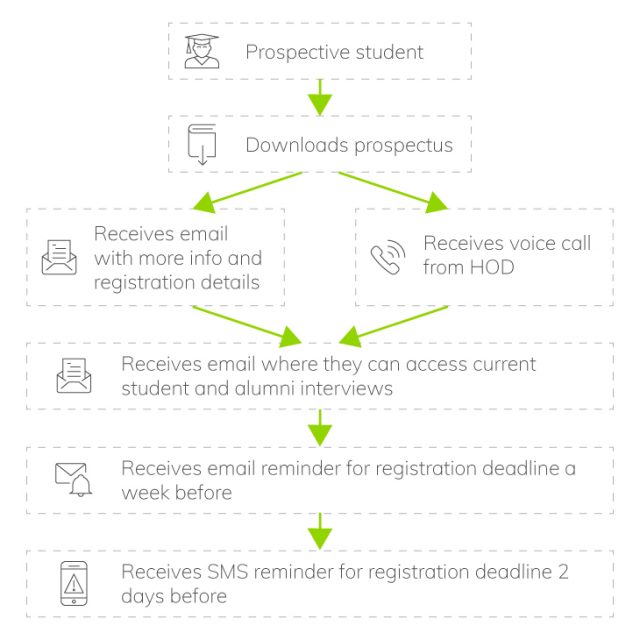
Prospective students are usually young, passionate, and eager to achieve their dreams. Get their attention early and add a personalised touch to make them feel welcome at your institution – not to mention, simplify, automate, and streamline the application process for you. An example like this also gives you the opportunity to:
- Communicate your value proposition
- Share useful information
- Have a clear call to action
- Keep your brand top of mind
New student onboarding
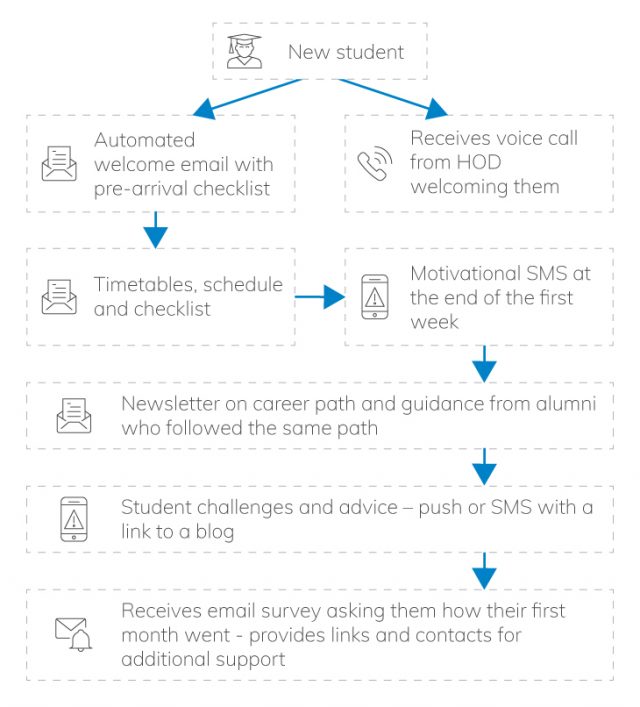
Starting a new education journey is a big step in a student’s life. It has the potential to fill them with hope and inspiration or fear and uncertainty. Give them the support they need so the process is simple and comforting, helping them stay positive. This extra support can develop a sense of rapport and loyalty towards your institution; keeping them grounded when struggles threaten to rock their stability down the line.
Behaviour-triggered communication
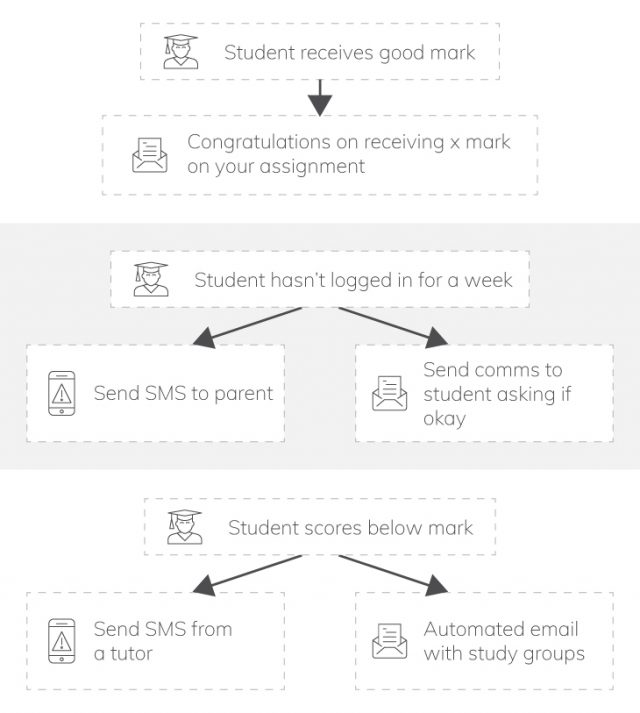
Students are people with real lives that can pull them in all directions. Keeping them engaged, supported, and motivated to stick with their studies isn’t just a business preference; with messaging automation tools like Everlytic available, it’s a moral obligation. Examples like this can be set up once and have a ripple effect for countless students for years to come.
Students under financial strain
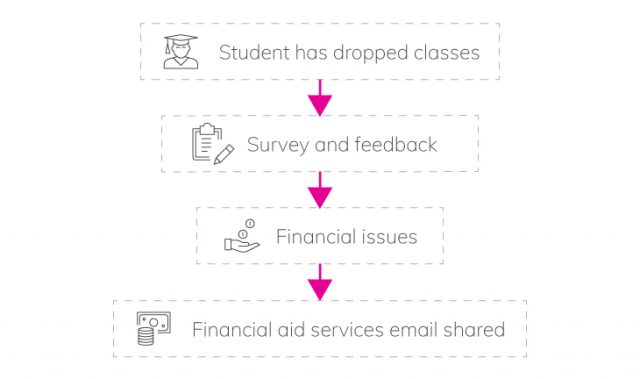
Financial strain is a common catalyst for student dropouts, but with many financial aid options available, it doesn’t always need to be. With an automated communication workflow like this, you can determine why students are missing classes before they drop out, so you can give them the support they need to keep them engaged.
The South African education system may not be perfect but getting the most out of the students who are already engaged and enrolled is low-hanging fruit. This is something we can do now. Reach out to Everlytic so they can help you change more students’ lives for the better. Let Everlytic call you.
This article is sponsored by Everlytic and originally appeared on the Everlytic blog on 28 February 2020.
All images: Everlytic

